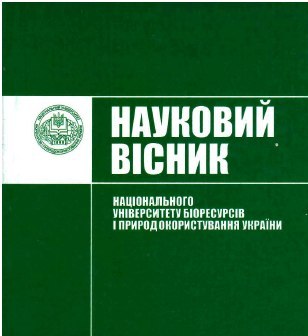Genre specificity of the book of verses
DOI:
https://doi.org/10.31548/philolog0(248).2016.0150%20-%20155Abstract
The article deals with the book of verses as an independent genre, highlights its genre peculiarities and specific features. The question of the book of verses genesis, the methods of its organization, as well as, its relationship with the concept of cyclization in the literature is considered.
Book of verses as a genre is relevant to the issue of literary studies. The modern concept of the book of verses entered the literature together with the term cyclization, which, in turn, was formed thanks to the creativity of Symbolist poets as Balmont, Bryusov, Block, Belyj.
The question of genesis of the book of verses genre in Russian literary tradition is ambiguous. Some linguists rank the emergence the books of verses genre to the XVII-XVIII centuries, others – to the beginning of the XX century. Taking into account the close connection of the book of verses with the concept of cyclization in literature, some researchers analyze this concept in the context of the overall cycle formation, while others note the significant differences between the concepts of a book of poems and cycle. Among the book of verses features the following are distinguished: integrity, the presence of an individual manner of expression of the author's consciousness, reader's perception of the organization and the concept of the intersection of meanings, the concept of universalism. Also, title is an important component of the book of verses, in which the most important intertwined motifs are entwined.
One of the methods of organizing a book of poetry is a lyrical "I". Its transformation and individual features become one of the main problems in the study of the poetics of the author’s poetic collection. From here the book of verses acquires a new task: to reveal specific emotional tone and lyrical theme, which is reflected in the particular book. Therefore, the book of verses is the representation of the author's consciousness at a certain career stage. The analysis of the book of verses makes it possible to explore the artistic evolution of the author more completely. The integrity of the book of verses structure is achieved by the author’s titles, dedications, afterwords, author’s commentaries, selected composite principle and, with the help of illustrations and covers.
Thereby the book of verses, as a form of artistic cyclization, has a certain artistic integrity in the author's consciousness and takes part in the formation of the reader's perception. As a collection of poems with carefully thought-out construction, variety of lyrical themes and descriptions of various feelings and impressions, the book of verses creates a complete picture of the world.
References
Balmont K. Budem kak Solnce. Kniga simvolov [We are like the sun. Book of symbols] [Electronic resource] / K. Balmont. – Moscow: Skorpion, 1902. – 232 s. – Access mode: https://ru.wikisource.org/wiki/
%D0%91%D1%83%D0%B4%D0%B5%D0%BC_%D0%BA%D0%B0%D0%BA_%D0%A1
%D0%BE%D0%BB%D0%BD%D1%86%D0%B5_(%D0%91%D0%B0%D0%BB%D1%8C
%D0%BC%D0%BE%D0%BD%D1%82_1903)
Bek T. Kniga stixov kak edinstvo [Book of verses as a unity] [Electronic resource] /
T. Bek // Literature. – 2003. – № 02 (473). – Access mode: http://lit.1september.ru/article.php?ID=200300202
Darvin M. N. Kniga stixov [Book of verses] / M. N. Darvin // Poetics. Glossary of actual terms and concepts / [gl. nauch. red. N. D. Tamarchenko]. – M., 2008. – S.96–97.
Darvin M. N. Xudozhestvennaya ciklizaciya liricheskix proizvedenij [Artistic cyclization of lyrical works] / M. N. Darvin. – Kemerovo, 1997. – 40s.
Darvin M. N. Cikl [Cycle] [Electronic resource] / M. N. Darvin // Literature. Literary work: basic concepts and terms / [red. L. V. Chernec]. – M.: Izdatelstvo Vysshaya shkola, 1999. – Access mode: http://uchebniki-besplatno.com/literaturovedenie-uchebnik/darvin- tsikl-24429.html.
Kushner A. Kniga stixov [Book of verses] / A. Kushner // Issues of literature. – 1975.
– № 3. – S. 178–188.
Kushner A. Stixotvoreniya. Chetyre desyatiletiya [Poems. Four decades] [Electronic resource] / A. Kushner. – M.: Progress-Pleyada, 2000. – Access mode: http://fanread.ru/book/7314128/?
Miroshnikova O. V. Itogovaya kniga v poezii poslednej treti XIX veka: arxitektonika i zhanrovaya dinamika: Monografiya [The resulting book in poetry of the last third of the
twentieth century: architectonics and genre dynamics: Monograph] / O. V. Miroshnikova. – Omsk: Izdatelsvo Omskogo gos. un-ta., 2004. – 339 s.
Mstislavskaya E. P. Avtorskaya kniga liriki kak yavlenie kultury (Problemy kompleksnogo izucheniya) [Author's book of lyrics as a cultural phenomenon (comprehensive study of the problem)] / E. P. Mstislavskaya, E. I. Yacunok // Kniga. Issledovaniya i materialy.
– M., 1995. – S. 188–204.
Fomenko I. V. O poetike liricheskogo cikla: [ucheb. posobie] [About the poetics of the lyrical cycle] / I. V. Fomenko. – Kalinin: Izdatelstvo Kalininskogo universiteta, 1984. – 79 s.
Fomenko I. V. Poetika liricheskogo cikla: avtoref. dis. na soiskanie uch. stepeni dok. filol. nauk: spec. 10.01.08 ,,Teoriya literatury'' [Poetics of the lyrical cycle] [Electronic resource]
/ I. V. Fomenko. – M., 1990. – Access mode: http://cheloveknauka.com/poetika-liricheskogo- tsikla
Downloads
Issue
Section
License
Relationship between right holders and users shall be governed by the terms of the license Creative Commons Attribution – non-commercial – Distribution On Same Conditions 4.0 international (CC BY-NC-SA 4.0):https://creativecommons.org/licenses/by-nc-sa/4.0/deed.uk
Authors who publish with this journal agree to the following terms:
- Authors retain copyright and grant the journal right of first publication with the work simultaneously licensed under a Creative Commons Attribution License that allows others to share the work with an acknowledgement of the work's authorship and initial publication in this journal.
- Authors are able to enter into separate, additional contractual arrangements for the non-exclusive distribution of the journal's published version of the work (e.g., post it to an institutional repository or publish it in a book), with an acknowledgement of its initial publication in this journal.
- Authors are permitted and encouraged to post their work online (e.g., in institutional repositories or on their website) prior to and during the submission process, as it can lead to productive exchanges, as well as earlier and greater citation of published work (See The Effect of Open Access).

